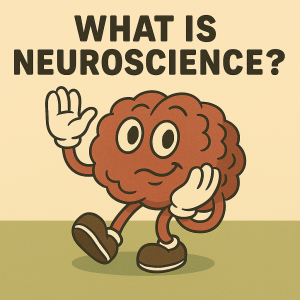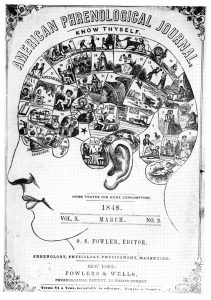Module 01: What is Neuroscience?

Description: Before we can dig into the complexities of how the brain works, we must first understand what neuroscience is as a discipline. This module introduces you to the foundations of neuroscience as an interdisciplinary field, explores its fascinating history, & examines the ethical & evolutionary principles that guide modern neuroscience research.

Why This Module is Important: Understanding the foundations of neuroscience is essential for anyone entering the field of psychology, especially future counselors, clinicians, educators, & researchers. This module introduces the interdisciplinary nature of neuroscience, its historical development, & the ethical principles that guide research & practice.
For counselors, this module provides:
- A scientific framework for understanding how brain function relates to behavior, emotion, & mental health.
- Insight into the ethical considerations of working with vulnerable populations, including those affected by neurological or psychological disorders.
- A foundation for interpreting neuroscience-informed approaches to therapy, such as trauma-informed care or neurofeedback.
For other psychology professionals, this module supports:
- Critical evaluation of research claims & evidence-based practices.
- Appreciation of how neuroscience integrates with fields like cognitive psychology, developmental psychology, & health psychology.
- Ethical decision-making in research, clinical work, & public policy related to brain science.
Module Learning Objectives: By the end of this module students will be able to…
- MLO1: Identify key historical figures, events, & research methods in neuroscience. (CLO1, ULO1)
- MLO2: Analyze the ethical implications & considerations of neuroscience research on human & animal subjects. (CLO2, CLO3, ULO1)
- MLO3: Construct evidence-based arguments for & against stem cell research, evaluating both scientific merit & ethical considerations. (CLO3, CLO4, ULO1)
Test Yourself: If you truly “know” this material then you will be able to…
- Summarize the major developments in neuroscience history from ancient trepanation through 19th-century discoveries, demonstrating understanding of how scientific knowledge progressed over time. (MLO1)
- Evaluate how the ethical guidelines for human & animal research adequately address the concerns raised by specific neuroscience research methods. (MLO2)
- Evaluate how the ethical guidelines for human & animal research adequately address the concerns raised by specific neuroscience research methods. (MLO3)
Media Attributions
- What is Buddy © Microsoft Copilot adapted by Jay C. Brown is licensed under a CC0 (Creative Commons Zero) license
- The School of Athens © Raffaello Sanzio de Urbino is licensed under a Public Domain license
- Phrenology Journal is licensed under a Public Domain license
